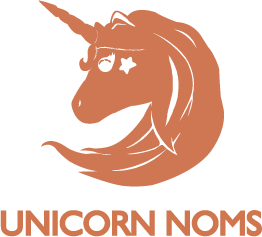Plant-based foods are typically lower in calories and unhealthy fats compared to animal-based foods. This makes it easier to create a calorie deficit, which is necessary for weight loss. Additionally, reducing the intake of saturated fats and cholesterol found in animal products can improve heart health and overall fitness.
Plant-Based Foods for Weight Management
Incorporating specific plant-based foods into your diet can significantly aid in weight management. Here are some top choices:
Leafy Greens
Leafy greens like spinach, kale, and arugula are low in calories but high in vitamins, minerals, and antioxidants. They can be used in salads, smoothies, and stir-fries to add volume and nutrients without adding extra calories.
Legumes
Beans, lentils, and chickpeas are excellent sources of plant-based protein and fiber. They help keep you full and provide sustained energy. Legumes can be added to soups, stews, salads, and even made into plant-based burgers.
Whole Grains
Whole grains such as quinoa, brown rice, and oats are rich in fiber and provide a steady release of energy. They are more filling than refined grains and can help maintain stable blood sugar levels. Incorporating whole grains into your meals can prevent overeating and support weight loss.
Nuts and Seeds
Nuts and seeds are packed with healthy fats, protein, and fiber. While they are calorie-dense, they promote satiety and can help control appetite when eaten in moderation. They make excellent snacks and can be added to salads, oatmeal, or smoothies.
Fruits and Vegetables
Fruits and vegetables are low in calories but high in essential nutrients. They provide natural sugars for energy and are rich in fiber and water, which aid in digestion and hydration. Snacking on fruits and adding a variety of vegetables to your meals can help manage weight effectively.
Plant-Based Foods for Improved Fitness
In addition to aiding weight management, plant-based foods can enhance fitness levels by providing the necessary nutrients for energy, muscle recovery, and overall performance.
Plant Based Protein
Proteins are essential for muscle repair and growth. Plant-based protein sources like tofu, tempeh, edamame, and protein-rich legumes support muscle recovery after workouts. Including these proteins in your diet ensures you meet your fitness goals without relying on animal products.
Healthy Fats
Healthy fats from avocados, nuts, seeds, and olive oil are vital for overall health and energy. They help in the absorption of fat-soluble vitamins and provide long-lasting energy, essential for endurance and strength training.
Hydration and Electrolytes
Many plant-based foods have high water content, contributing to hydration. Additionally, fruits and vegetables like bananas, sweet potatoes, and spinach provide electrolytes such as potassium and magnesium, crucial for muscle function and preventing cramps.
Adopting a plant-based diet offers numerous benefits for weight management and improved fitness. The high fiber content, low calorie, and unhealthy fat levels, combined with the rich nutrient profile of plant-based foods, make this dietary approach an excellent choice for those looking to enhance their health and fitness.
Incorporating a variety of plant-based foods into your diet can help you achieve and maintain a healthy weight, provide the necessary energy for workouts, and support muscle recovery and overall performance. As the popularity of plant-based diets continues to grow, more individuals are discovering the transformative impact of these foods on their health and fitness. For those new to plant-based eating, starting with small changes and gradually increasing the variety of plant-based foods can make the transition smoother and more sustainable. Embrace the power of plants and experience the benefits of a plant-based diet for weight management and improved fitness.

